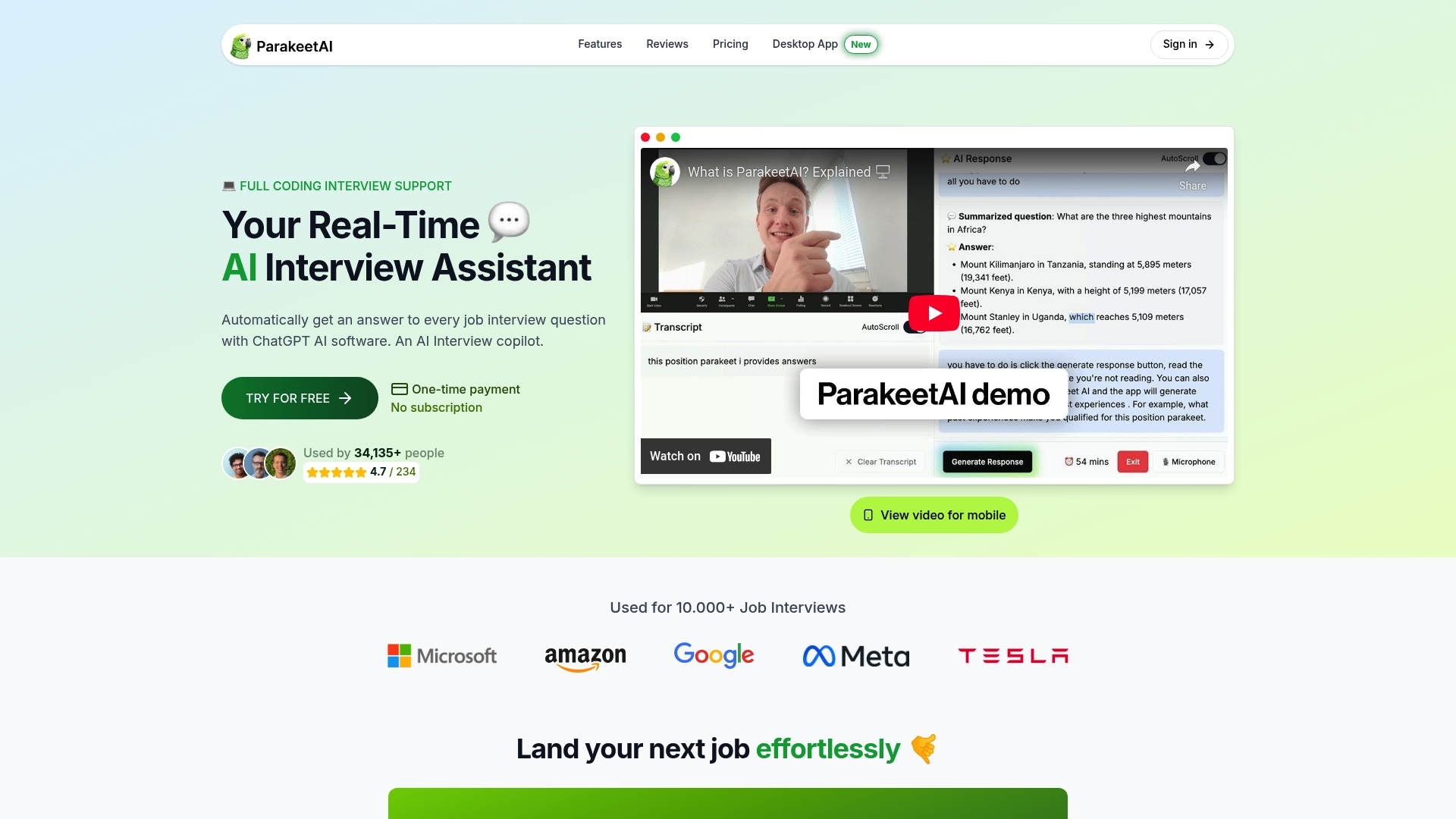Master Phone Interview Questions and Answers Effectively

Preparing for a phone interview can feel like navigating a maze with no map and plenty of guesswork. Surprisingly, while most job seekers focus on what they will say, only about 10 percent actually practice their answers aloud before a call. This twist means your real competitive advantage might not be in having all the right answers, but in how you sound delivering them.
Table of Contents
- Step 1: Research Common Phone Interview Questions
- Step 2: Prepare Your Personal Responses
- Step 3: Practice Your Answers Aloud
- Step 4: Set Up Your Interview Environment
- Step 5: Execute The Phone Interview Confidently
- Step 6: Follow Up With A Thank-You Email
Quick Summary
| Key Point | Explanation |
|---|---|
| 1. Research common interview questions | Familiarize yourself with typical phone interview questions to prepare targeted responses that highlight your strengths. |
| 2. Craft your personal narrative | Develop a concise professional story that connects your experiences with the job requirements to demonstrate your qualifications. |
| 3. Practice aloud to refine delivery | Vocal practice enhances your communication skills and helps eliminate verbal stumbling blocks for a natural interview style. |
| 4. Optimize your interview environment | Create a quiet, organized space with necessary documents at hand to minimize distractions during the phone call. |
| 5. Follow up with a thank-you email | Send a personalized thank-you email within 48 hours to reinforce your interest and leave a positive impression post-interview. |
Step 1: Research common phone interview questions
Researching common phone interview questions is your strategic foundation for interview preparation. This critical first step transforms potential uncertainty into confident readiness, allowing you to anticipate and craft compelling responses before the actual conversation begins. Understanding the landscape of typical phone interview questions will help you develop targeted, authentic answers that showcase your professional strengths.
Start by examining the most frequently asked phone interview questions across various industries and job roles. Learn more about interview strategies through systematic research and targeted preparation. Professional resources like university career centers, job websites, and industry-specific platforms offer comprehensive compilations of standard questions that recruiters typically ask during initial screening calls.
Your research should focus on identifying core question categories that appear consistently. These typically include questions about your professional background, current job situation, career objectives, and specific skills relevant to the position. Key areas to investigate include: behavioral inquiries about past work experiences, motivation and career goals, technical competencies, and questions designed to assess your cultural fit within the organization.
Effective research involves multiple strategies. Review job description requirements carefully, as they often hint at the types of questions you might encounter. Professional networking platforms like LinkedIn and industry forums can provide insights into interview practices specific to your field. Consider reaching out to professionals in similar roles who can share their recent phone interview experiences and offer nuanced advice about potential questions.
As you compile your list of potential questions, create a preliminary response framework for each. This doesn’t mean memorizing scripted answers but developing flexible, authentic response structures that can be tailored to specific contexts. Practice articulating your professional narrative concisely, highlighting achievements and skills that directly align with the job requirements.
Successful completion of this research phase means you have a comprehensive understanding of potential phone interview questions, drafted preliminary response strategies, and feel prepared to enter the interview with confidence and clarity.

Step 2: Prepare your personal responses
Preparing personal responses transforms your phone interview from a potential challenge into a strategic opportunity to showcase your professional capabilities. This step is about crafting authentic, compelling narratives that connect your unique experiences with the job requirements, demonstrating why you are the ideal candidate. Discover advanced interview preparation techniques to elevate your communication strategy.
Begin by developing a concise professional narrative that succinctly communicates your career journey. This personal story should highlight key achievements, professional growth, and the specific skills that make you uniquely qualified for the position. Practice articulating this narrative in a clear, confident manner that sounds natural and unrehearsed. Your goal is to create a fluid response that can adapt to various questions about your background and professional motivations.
According to Monash University’s career guidance, tailoring your responses to the specific job description is crucial. Analyze the job requirements carefully and map your experiences directly to the skills and qualifications they seek. This means identifying specific examples from your professional history that demonstrate your capability to excel in the role. For instance, if the job requires strong project management skills, prepare concrete stories that illustrate your ability to lead teams, manage complex initiatives, and deliver results.
Develop a structured approach to answering behavioral and situational questions. Use the STAR method (Situation, Task, Action, Result) to frame your responses. This technique helps you provide comprehensive answers that showcase not just what you did, but how you think and solve problems. Practice delivering these responses out loud, paying attention to your tone, pace, and clarity. Phone interviews require extra attention to vocal communication, so ensure your responses sound engaging and confident.
Create a cheat sheet of key talking points to keep near you during the phone interview. This should include critical professional achievements, relevant statistics or outcomes from your previous roles, and specific examples that demonstrate your skills. However, avoid reading directly from this sheet. Instead, use it as a quick reference to help you stay focused and ensure you cover your most important points.
Successful preparation means you can articulate your professional value proposition clearly and confidently. Your responses should feel natural, demonstrate your expertise, and create a compelling narrative that makes the interviewer eager to learn more about you as a potential team member.
Step 3: Practice your answers aloud
Practicing your answers aloud transforms written preparation into confident communication, bridging the gap between carefully crafted responses and natural conversation. This critical step helps you refine your delivery, identify potential verbal stumbling blocks, and develop a smooth, professional communication style that will shine during your phone interview. Learn more about interview communication strategies to enhance your approach.
According to University of Minnesota’s career guidance, vocal practice is essential for telephone interviews. Begin by creating a dedicated practice environment where you can speak freely without interruption. Use a mirror or record yourself to observe your speaking patterns, paying close attention to your tone, pace, and clarity. Speaking aloud reveals nuances that written preparation cannot capture - such as unnecessary filler words, speaking too quickly, or lacking enthusiasm.
Design a comprehensive practice routine that simulates actual interview conditions. Recruit a trusted friend, family member, or career mentor to conduct mock phone interviews. Ask them to provide honest feedback about your communication style, noting areas where you might sound uncertain or lose coherence. If a live practice partner isn’t available, use voice recording apps to capture your responses. Listen critically to these recordings, identifying moments where you can improve articulation, reduce verbal clutter, or add more compelling details.
Develop strategies to manage potential interview challenges during your vocal practice. Work on maintaining a consistent energy level, even when discussing complex professional experiences. Practice modulating your voice to sound engaged and interested, avoiding monotone delivery that might make you seem disinterested. Techniques like taking deliberate breaths, speaking at a measured pace, and inserting natural pauses can significantly improve your vocal presentation.
Pay special attention to your responses to common interview questions. Aim for responses that sound conversational yet professional, demonstrating your ability to communicate complex ideas clearly and confidently. Practice transitioning between different types of questions smoothly, ensuring your answers feel connected and coherent. Focus on maintaining a positive, enthusiastic tone that reflects your genuine interest in the position.
Successful practice means you can deliver your professional narrative with confidence, clarity, and genuine enthusiasm. Your vocal preparation should result in responses that feel natural, showcase your unique strengths, and create a memorable impression during the phone interview.
Step 4: Set up your interview environment
Creating the ideal interview environment is a critical yet often overlooked aspect of phone interview preparation. Your physical and technological setup can significantly impact your performance, confidence, and overall professional presentation. Explore advanced interview preparation techniques to optimize your communication strategy.
According to Cornell University’s interview guidance, selecting the right physical space is paramount. Choose a quiet, enclosed area with minimal background noise and potential interruptions. Ideal locations include a home office, a private room with a closed door, or a quiet corner that allows you to speak freely without external distractions. Inform family members or roommates about your interview schedule to prevent unexpected interruptions.
Technical preparation is equally crucial. Ensure your phone or computer is fully charged and has a strong, stable connection. If using a mobile phone, position yourself near a reliable wifi or cellular signal. Consider using headphones with a built-in microphone to improve sound quality and reduce background noise. Test your audio equipment beforehand by making a practice call to a friend or recording a short audio clip to verify clarity and volume.
Prepare all necessary documents before the interview. Have your resume, the job description, and your prepared notes within easy reach. Create a clean, organized workspace that reflects your professional demeanor. Keep a glass of water nearby to prevent dry mouth, and have a pen and notebook ready for taking notes during the conversation. Minimize digital distractions by silencing notifications on your computer and phone, and closing unnecessary browser tabs or applications.
Consider the lighting and background of your space. If the interview might involve video, choose a neutral, uncluttered background with good, soft lighting that illuminates your face without creating harsh shadows. Position yourself facing a light source to ensure you are clearly visible and appear professional. A simple, clean wall or a minimal backdrop works best for maintaining a professional appearance.
Successful environment preparation means creating a controlled, professional space that allows you to focus entirely on presenting your best self. Your carefully curated interview environment will help you feel confident, comfortable, and ready to showcase your professional capabilities.
To help you prepare for your phone interview, the table below summarizes essential tools and materials, along with their purposes to ensure your environment and resources are interview-ready.
| Tool/Material | Specification/Type | Purpose |
|---|---|---|
| Quiet Location | Home office or private room | Minimize background noise and distractions |
| Charged Phone/Device | Fully charged smartphone or computer | Avoid interruptions due to low battery |
| Stable Connection | Reliable wifi or strong cellular signal | Ensure clear communication |
| Headphones/Microphone | With built-in microphone | Improve audio quality and reduce noise |
| Printed Resume | Current, tailored version | Quick reference for discussing experience |
| Job Description | Printed or digital copy | Reference to tailor responses |
| Prepared Notes | Cheat sheet with talking points | Stay focused on key achievements |
| Pen and Notebook | Standard writing materials | Take notes during the interview |
| Glass of Water | Room temperature | Prevent dry mouth during conversation |
Step 5: Execute the phone interview confidently
Executing a phone interview confidently requires a strategic blend of preparation, communication skills, and professional demeanor. This final step transforms your meticulous preparation into a compelling professional performance that can open doors to exciting career opportunities. Discover advanced communication techniques to enhance your interview success.
First impressions matter immensely, even in a phone interview. Answer the call promptly and professionally, using a clear, enthusiastic greeting that establishes your engagement. Speak in a measured, confident tone that communicates your readiness and excitement about the opportunity. Your vocal energy should convey professionalism without sounding overly rehearsed or artificial. Take a deep breath before answering to center yourself and maintain a calm, collected demeanor throughout the conversation.
Listen carefully to each question, allowing the interviewer to complete their thought before responding. Demonstrate active listening by providing brief verbal acknowledgments like “I understand” or “Great question” that show you are fully present and engaged. When formulating your responses, take a moment to structure your answer using the techniques you practiced. Utilize the STAR method to provide concrete examples that illustrate your skills and experiences, ensuring your answers are both comprehensive and concise.
Maintain a professional attitude throughout the interview, even if unexpected challenges arise. Technical difficulties, background noises, or momentary confusion can occur, but your response to these situations reveals your problem-solving skills and composure. If you encounter an unclear question, politely ask for clarification. If a connection becomes unstable, remain calm and offer to redial or switch to an alternative communication method.
During the conversation, have your prepared materials nearby but avoid rustling papers or sounding distracted. Take brief notes if necessary, but focus on maintaining a conversational flow. Show genuine interest in the role by asking thoughtful questions about the position, team, and company culture. These inquiries demonstrate your proactive approach and commitment to understanding the opportunity fully.
Successful phone interview execution means presenting a confident, authentic version of yourself that aligns with your professional goals. Your preparation, communication skills, and professional demeanor will converge to create a memorable interaction that positions you as a top candidate for the role.
Below is a checklist you can use to verify that all interview preparation steps have been completed, ensuring you are ready for a successful phone interview.
| Preparation Step | Completion Criteria | Status (✓/✗) |
|---|---|---|
| Research Common Questions | Compiled list of industry-relevant questions | |
| Prepare Personal Responses | STAR stories and narrative matching job requirements | |
| Practice Answers Aloud | Conducted mock interviews/voice recording sessions | |
| Set Up Interview Environment | Quiet, organized space with technology tested | |
| Gather Essential Materials | Resume, notes, job description, pen, water ready | |
| Follow Up with Thank-You Email | Drafted personalized email, ready to send post-call |

Step 6: Follow up with a thank-you email
Following up with a thank-you email is a crucial final step that can distinguish you from other candidates and reinforce the positive impression you made during the phone interview. This strategic communication demonstrates professionalism, attention to detail, and genuine interest in the position. Learn more about professional follow-up strategies to maximize your interview impact.
According to University of San Francisco’s career guidance, timing is critical when sending a thank-you email. Aim to send your email within 24 to 48 hours after the interview, striking a balance between prompt communication and thoughtful reflection. Begin by crafting a professional email address with a clear, concise subject line that references the specific position and interview. For example, “Thank You - Senior Marketing Manager Interview” immediately provides context for the recipient.
Personalize your thank-you email by referencing specific moments from the interview that resonated with you. Highlight key discussion points, demonstrate your understanding of the role, and reiterate your enthusiasm for the position. Showcase your active listening skills by mentioning specific insights or challenges discussed during the conversation. This approach demonstrates that you were fully engaged and are genuinely interested in contributing to the organization.
Structure your email with a clear, professional format. Start with a warm greeting using the interviewer’s name, express sincere gratitude for their time and the opportunity to discuss the role, and briefly reinforce why you are an excellent candidate. Include a concise paragraph that connects your skills and experiences to the specific requirements of the position. If appropriate, address any points you may not have fully explained during the interview or provide additional context that strengthens your candidacy.
Proofread your email meticulously, checking for grammatical errors, tone, and clarity. A well-crafted thank-you email should be concise yet comprehensive, typically ranging from 150 to 250 words. Consider asking a trusted friend or mentor to review the email before sending. If you interviewed with multiple people, send personalized emails to each interviewer, ensuring that each message feels genuine and unique.
Successful follow-up means sending a professional, timely, and memorable thank-you email that leaves a lasting positive impression and keeps you top of mind during the hiring process.
Overcome Phone Interview Anxiety with Real-Time AI Assistance
Do you ever feel uncertain about how to answer unexpected interview questions or struggle to recall the right example when it matters most? This article breaks down practical steps for mastering phone interview questions, from thorough research and preparing your narrative to practicing your delivery and setting up the perfect environment. But even with the best preparation, live interviews introduce stress, and it can be a challenge to think on your feet.

Imagine having instant support every time you face a tough question. Parakeet AI is your real-time AI job interview assistant. It listens in during your interview and automatically suggests tailored answers to every question, using the same proven strategies discussed in this guide. With Parakeet AI, you can respond calmly, highlight your achievements, and remain composed under pressure. Ready to turn your preparation into a true advantage? Visit Parakeet AI now and start using technology that helps you impress in your next phone interview.
Frequently Asked Questions
What are common phone interview questions I should prepare for?
Common phone interview questions often cover your professional background, motivations, career goals, and specific skills relevant to the job. Typical areas to focus on include behavioral inquiries, technical competencies, and cultural fit within the organization.
How can I create effective responses to phone interview questions?
To create effective responses, develop a concise professional narrative that highlights your key achievements and skills related to the job. Use the STAR method (Situation, Task, Action, Result) to structure your answers to behavioral questions, ensuring you illustrate your problem-solving abilities and experiences clearly.
What should I do to prepare my environment for a phone interview?
Choose a quiet, enclosed area for your interview free from distractions. Ensure your technology is functioning properly, with a stable connection. Organize your workspace by having necessary documents at hand and maintaining a clean, professional backdrop if you’re on video.
How important is it to follow up with a thank-you email after a phone interview?
Following up with a thank-you email is very important. It demonstrates professionalism and reinforces your interest in the position. Aim to send the email within 24 to 48 hours, personalizing it by referencing specific moments from the interview to make a lasting impression.




